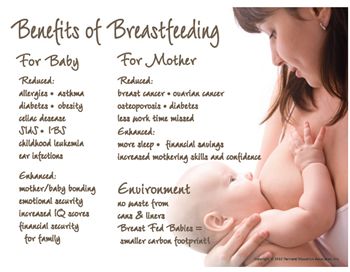Ever wondered what is the big deal about breastfeeding?
Are all those sleepless nights and time & effort spent pumping milk for your baby worth it???
Read on and you'll never regret Breastfeeding!
Even a drop of breastmilk has such wonderful nutrients that NO other artificial milk can replace.
What is Breastmilk made of?
 |
| Just the right amount for your Baby
Water is the main composition of Breastmilk.
This is why Babies age 6 months and below do not need additional water.
|
WORRIED THAT BABY'S JAUNDICE MIGHT PROLONG BECAUSE OF EXCLUSIVE BREASTFEEDING & NO WATER?
BELOW IS EVIDENCED BASED PROOF EXCLUSIVE BREASTFEEDING DOES NO HARM.
WORRIED THAT BABY MIGHT GET CONSTIPATED BECAUSE OF EXCLUSIVE BREASTFEEDING & NO WATER?
THIS IS HOW AN EXCLUSIVELY BREASTFED BABY'S STOOL USUALLY LOOK LIKE
| Watery, Yellowish & Seedy |
How is Breastmilk Superior to Other Milk in Terms of Composition?
 |
| Both Human & Cow Milk has Vitamis. The Quantity of Vitamins is higher in Human Milk. |
How does Breastfeeding Boosts Baby's Immunity?
 |
| Gone with the days of mythology whereby you cannot breastfeed your baby when you are ill. The actual fact is, YOU SHOULD CONTINUE BREASTFEEDING & IT BENEFITS YOUR BABY! |
Still Not Convinced Mummies?
Below are some Evidence Based Prove That Breastmilk has Anti-Infective Properties.
WHAT OTHER BENEFITS BABY GAIN FROM BREASTFEEDING?
- (THE WOMANLY ART OF BREASTFEEDING,7th Revised Edition, page 350). “Breastfed babies have a decreased likelihood for allergies and dental caries. They also benefit from appropriate jaw, teeth and speech development as well as overall facial development. This means that people who were artificially fed may experience more trips to doctors and dentists “
-American Journal of Clinical (1999)- Meta-analysis (7000 children) showed that the IQ of a breastfed baby is 5.2 points higher that a non-breastfed baby.
-Bonding with Mother
WHAT DO MOTHERS GAIN FROM BREASTFEEDING BABIES?

-Reduces the risk of breast cancer. Women who breastfeed reduce their risk of developing breast cancer by as much as 25 percent.. The more months or years a mother breastfeeds, the lower her risk of breast cancer.
-Reduces the risk of uterine and ovarian cancer. Estrogen levels are lower during lactation, hence the less estrogen available to stimulate the lining of the uterus and perhaps breast tissue also, the less the risk of these tissues becoming cancerous.
-Lessens osteoporosis. Non-breastfeeding women have a four times greater chance of developing osteoporosis than breastfeeding women and are more likely to suffer from hip fractures in the post-menopausal years.
-Benefits child spacing. Since breastfeeding delays ovulation, the longer a mother breastfeeds the more she is able to practice natural childspacing, if she desires
-Promotes emotional health. Studies show that breastfeeding mothers show less postpartum anxiety and depression than do formula-feeding mothers.
-Promotes postpartum weight loss. Breastfeeding mothers showed significantly larger reductions in hip circumference and more fat loss by one month postpartum when compared with formula-feeding moms. Breastfeeding mothers tend to have an earlier return to their pre-pregnant weight.
-Costs less to breastfeed.
SO WHAT IS SO BAD ABOUT FORMULA MILK?
MANY CHILDREN GROW UP WITH IT...???
What is infant formula?
Infant formula is an industrially produced milk product designed for infant consumption. Usually based on either cow or soy milk, infant formula strives to duplicate the nutrient content of natural human milk. Since the exact chemical properties of breast milk are still unknown, 'formula' is necessarily an imperfect approximation.
The composition of formula, is a CHEMICAL PREPARATION subject to:
1.Human error
2.Raw materials – including water at manufacturing level and household level
Formulas are at risk of contamination from:
-Arsenic from contaminated well water
-Lead (from boiled-lead containing water)
-Manganese (which may lead to learning disabilities & altered brain chemistry)
-Atrazine (a carcinogen)
-Enterobacter Sakazakii (can cause meningitis)
WHAT ABOUT SOY MILK??
We sincerely Hope you Breastfeed Your Baby with Full of Love, Pride & Joy!
EVERY DROP OF BREASTMILK IS PRECIOUS!
SOURCE: NATIONAL LACTATION CENTRE




















